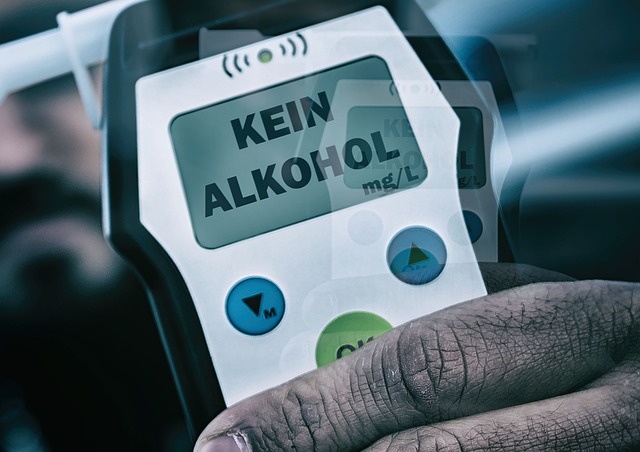Driving under the influence (DUI) is often linked to untreated mental health issues, such as depression or bipolar disorder, which can impair judgment and coordination. Traditional sentencing methods fail to address these root causes. Alternative sentences like diversion programs, community service, and specialized treatment for mental health and substance abuse aim to reduce recidivism by focusing on rehabilitation and public safety. These holistic approaches, including mental health-focused therapy and community education, empower offenders with necessary support for positive life changes, ultimately contributing to safer communities.
In the realm of legal consequences for DUI (drunk or drugged driving), traditional sentencing often falls short in addressing the complex issue of impaired driving, especially when mental health is a factor. This article explores alternative sentencing options that balance public safety with rehabilitation. We delve into understanding DUI, comparing traditional sentencing to innovative approaches, highlighting benefits, and examining various program types. Success stories reveal how these alternatives are revolutionizing justice for DUI offenders while addressing the underlying causes of impaired driving, including mental health concerns.
- Understanding DUI: Mental Health and Impaired Driving
- Traditional Sentencing vs. Alternative Approaches
- Benefits of Alternative Sentencing Options
- Types of Alternative Programs for DUI Offenders
- Implementation and Success Stories
Understanding DUI: Mental Health and Impaired Driving

Driving under the influence (DUI) is a serious offense, often compounded by underlying mental health issues. It’s crucial to understand that impaired driving isn’t solely about physical intoxication; it’s also deeply connected to mental wellness. Many individuals struggling with mental health conditions, such as depression, anxiety, or bipolar disorder, may experience impaired judgment and coordination, leading to risky behaviors like driving under the influence.
Recognizing this intersection is vital in navigating alternative sentencing options. Instead of strict penalties, some programs focus on treatment and support for mental health challenges. These approaches aim to address the root causes, offering counseling, medication management, and other interventions to help individuals recover and prevent future impaired driving incidents. By integrating mental health services into DUI cases, we can foster more effective rehabilitation and promote safer communities.
Traditional Sentencing vs. Alternative Approaches

Traditional sentencing for DUI often involves fines, imprisonment, or a combination of both. However, this approach may not address the underlying causes that contribute to impaired driving, such as mental health issues. In recent years, there’s been a growing recognition of the need for alternative sentencing options that focus on rehabilitation and public safety.
Alternative approaches like diversion programs, community service, electronic monitoring, and specialized treatment for mental health and substance abuse aim to provide more personalized and effective solutions. These methods not only reduce recidivism rates but also acknowledge the complex factors that can lead to DUI offenses. By offering support and resources tailored to individual needs, alternative sentencing has the potential to foster better outcomes for both offenders and the communities they return to.
Benefits of Alternative Sentencing Options

Alternative sentencing options for DUI (driving under the influence) cases offer a more holistic approach to addressing the issue, particularly when it comes to individuals with mental health concerns. These alternatives provide a chance to divert resources from traditional prison sentences towards programs that focus on rehabilitation and recovery. By offering tailored support, such as mental health counseling, substance abuse treatment, and community service, alternative sentencing can help reduce recidivism rates. This is especially beneficial for those struggling with impaired driving due to underlying psychological issues, as it allows them to address the root causes while ensuring public safety.
Moreover, considering mental health and impaired driving together in sentencing fosters a more compassionate and effective justice system. It recognizes that individuals with untreated mental health conditions may be at higher risk of substance abuse and subsequent impaired driving. Alternative sentences can offer a supportive environment for recovery, empowering those affected to take responsibility for their actions while receiving the necessary support to make positive changes in their lives. This not only benefits the individual but also contributes to safer communities overall.
Types of Alternative Programs for DUI Offenders

Alternative sentencing programs for DUI offenders have evolved to address the complex nature of impaired driving, recognizing that mental health plays a significant role in these cases. These programs offer a range of options tailored to individual needs, focusing on rehabilitation and community reintegration rather than solely on punishment. One such program is the mental health-focused treatment model, which prioritizes assessing and addressing underlying mental health issues that may have contributed to the DUI incident. This approach involves intensive therapy, support groups, and sometimes medication management to help offenders manage their conditions effectively.
Another type of alternative program is community service and education. This involves sentencing individuals to perform community service hours, attend educational workshops on the dangers of impaired driving, and participate in peer support groups. By engaging in these activities, offenders gain a deeper understanding of the impact of their actions on others while contributing positively to their communities. This approach not only promotes accountability but also fosters a sense of responsibility and personal growth.
Implementation and Success Stories

The implementation of alternative sentencing options for DUI (Drunk or Drugged Driving) cases has gained traction as a innovative approach to addressing this complex issue. These programs often include specialized courts, community-based interventions, and rehabilitation services tailored to address not only the legal consequences but also the underlying factors contributing to impaired driving, such as mental health issues. Success stories abound, with participants reporting improved outcomes in terms of reduced recidivism rates, better engagement with support systems, and enhanced overall well-being.
Mental Health and Impaired Driving often go hand in hand, with a significant portion of DUI offenders struggling with co-occurring disorders. Traditional sentencing methods may not adequately address these complex needs. Alternative sentences, however, offer a holistic approach by integrating mental health services into the justice system. This collaborative effort has led to promising results, demonstrating that by treating both the criminal offense and any underlying mental health challenges, communities can foster safer and healthier individuals re-entering society.
In addressing Mental Health and Impaired Driving, alternative sentencing options for DUI offenders present a promising shift towards rehabilitation rather than solely punishment. By exploring innovative programs and approaches, we can create more effective and compassionate systems that not only reduce recidivism but also foster positive change in the lives of those affected by alcohol-impaired driving. These alternatives hold key to building safer communities and offering second chances where traditional sentencing may fall short.






